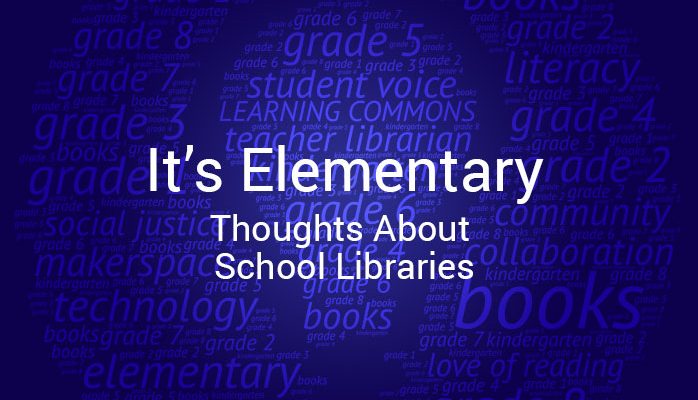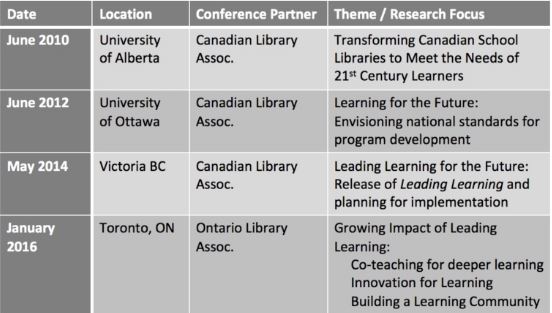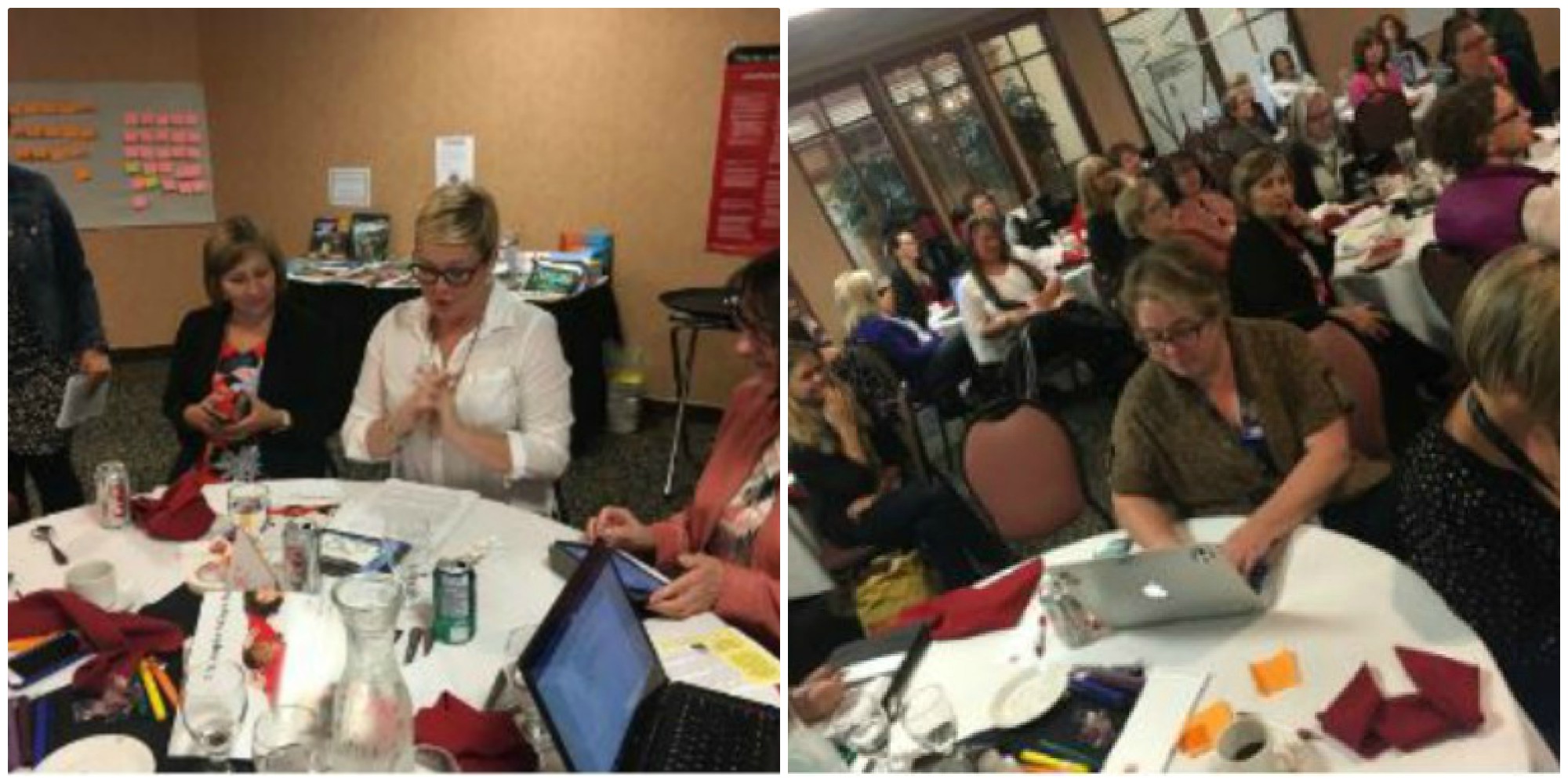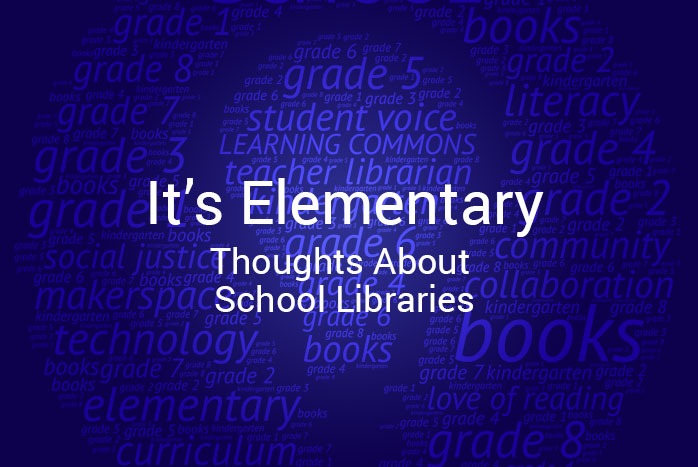I am intrigued with the work of fabulous secondary teacher librarian, Jonelle St. Aubyn. Her practice is both familiar and innovative.

Gathering with the voices of Canadian school libraries: Treasure Mountain Canada 5
As a teacher librarian in a busy K-to-8 school it would be easy to get lost in the day to day operations of my own space and forget about the power of connecting with other school library professionals. I am very lucky to have a well-developed network of support with other teacher librarians within our board and, more recently, to begin building relationships with various members of the OSLA community.
Each year, I am also more keenly aware of the inequities across our province in school library funding. We know there are boards that no longer have teacher librarians in schools. We also know that the funding formula does not offer a guaranteed financial commitment to school libraries. It is often a huge shock when I tell other educators that the yearly library budget is completely at the discretion of our school administration. (And I am grateful to say that my administration is very supportive!)
Recently, the Ontario Library Association shared this update on the inequities throughout the province in elementary school libraries.
This past August, Elementary Teachers Federation of Ontario (ETFO) passed a resolution calling on the Ontario Government to amend the education funding formula to specify proportional staffing of teacher-librarians based on student population, with a minimum allocation of a 1.0 full-time equivalent (FTE) Teacher-Librarian in each work site.
ETFO has also called for a dedicated learning commons budget to ensure students and teachers have access to relevant physical and virtual resources. Currently, according to a 2017 report from People for Education,
- Only 52% of elementary schools had at least one teacher–librarian, either full- or part-time. This is down from 60% in 2008, and 80% in 1998.
- Only 14% of elementary schools in eastern Ontario and 11% in northern Ontario have a teacher-librarian. This is compared with 81% of elementary schools in the GTA.
The Ontario Library Association welcomes this recent resolution, and the recognition of the vital role played by Teacher-Librarians. Schools with trained library staff including teacher librarians, library technicians, and support staff:
- see better reading outcomes on the Grade 3 and 6 EQAO assessments; and
- have reading achievement scores that are approximately 5.5 percentile points higher than average in Grade 6 EQAO results.
There are many voices hard at work advocating for increased funding and a strong public stance from our Ministry of Education in support of teacher librarians and the vital role of school libraries in learning and literacy development. In Ontario, one of these voices is Johanna Lawler. As a full-time teacher librarian, a past school library learning commons instructional coach for the Greater Essex County DIstrict School Board, OSLA Council Rep for the Southwest Region, and ETFO Chair for the Provincial Standing Committee for Library, Johanna works tirelessly to spread the message—we need thriving school libraries that are well-funded, supported by teams of library professionals and that each and every one has a teacher librarian in place. Johanna summarizes the need for this advocacy:
At the end of the day, it’s about equity and accountability. If the Ministry of Education is funding Teacher Librarians at a ratio of 1:763 in elementary and 1:909 in secondary, then why do we have this variance between Boards and between schools in the very same district? Why would a student living in a northern Ontario community like Timmins (where I grew up) not have the same access to a Teacher Librarian and to library resources like a student with Greater Essex in Windsor has? To me, the problem isn’t complicated. Hold Boards and School Administrators accountable for the funding and stick to it.
~ Johanna Lawler, November 2017
Despite the inequities and challenges, amazing work is happening throughout Ontario and the entire country to re-envision and revitalize school libraries as hubs of learning and innovation. While we continue to work to advocate for funding and recognition, we can also learn from one another about the positive impact of school libraries across Canada. This learning only strengthens and supports the argument of those like Johanna who are advocating for change each and every day. The work of the Canadian School Libraries Association (CSL) does just that.
The CSL “is a non-profit organization dedicated to professional research and development in the field of the school library learning commons in Canada. CSL connects school library practitioners and educators across Canada in the collaborative pursuit of delivering exemplary practices reflective of current professional school library learning commons standards” (Canadian School Libraries).
With a focus on research and sharing of pedagogical practices CSL provides a national source for all things school library learning commons. An amazing CSL initiative is their biennial symposium called Treasure Mountain Canada.
Treasure Mountain Canada (TMC) is visioned as an extension of a research retreat project called Treasure Mountain in the United States, developed by Dr. David Loertscher and colleagues in 1989. “It” serves as an incubator for much-needed research into school library practice (Canadian School Libraries).
Four previous TMC events have occurred:

This year, the fifth Treasure Mountain Canada (TMC5) was hosted in conjunction with the Manitoba School LIbrary Association Conference in Winnipeg. I had the honour of submitting a paper and attending the event in person. The theme for this year’s event was entitled Culturally Relevant and Responsive School Library Learning Commons, and had four sub-categories:
- Learning environment
- Instructional approaches
- Learning partnerships
- Leveraging technology
The event itself was like nothing I had ever experienced. Initially feeling a bit intimidated by the process, I soon realized that I had nothing to fear. All submissions were posted in a collaborative online workspace in the weeks leading up to the gathering and participants were asked to read and reflect upon their learning prior to attending the event. We shared feedback and questions via this online workspace in preparation for our face to face one day gathering.
Still feeling trepidatious, the numerous comments, questions and messages of support ultimately put my mind at ease.
On Saturday, October 21, 2017 approximately 40 school library professionals came together in Winnipeg to connect, share and reflect on our practice and the power of school libraries to foster equity, social justice and culturally responsive pedagogy.

It is difficult to describe the palpable sense of collective knowledge and passion for school libraries and their importance in fostering student success that was present in the meeting room.. As some of members of the driving force behind Leading Learning: Standards of Practice for School Library Learning Commons in Canada, the organizers of Treasure Mountain themselves could easily be considered the foremost experts on the evolution of the school library learning commons in Canada:
- Anita Brooks Kirkland
- Carol Koechlin
- Judith Sykes
- Liz Kerr
- Jo-Anne Gibson
Having the opportunity to connect with them and a wide range of school library professionals from around the country was truly a moving and powerful experience. To get a sense of this fast-paced and empowering day of sharing and learning check out #tmcanada2017 on Twitter.
The gathering of these voices in Canadian school libraries both in person and through their written submissions demonstrates an essential quality of the school library community—despite the inequities throughout the province (and the country for that matter), school library professionals are connected, networked, supportive and innovative practitioners who are determined to enhance student learning. I would encourage everyone to consider engaging in this experience if they are able and explore the TMCanada blog and the new archive site to learn more.
The entire TMC movement is a fabulous reminder that regardless of the systemic barriers they face, teacher librarians and school library technicians are not alone in their work to make the library learning commons the heart and hub of their schools.
Written by Jennifer Brown
Slider photo credit: Moren Hsu on Unsplash
Jennifer Brown, Teacher Librarian, works at the Castle Oaks Public School in the Peel District School Board. It’s Elementary: Thoughts About School Libraries is a regular column on Open Shelf. Jenn can be reached at jennifer.m.brown [at] peelsb.com and by following her Twitter account@JennMacBrown.
